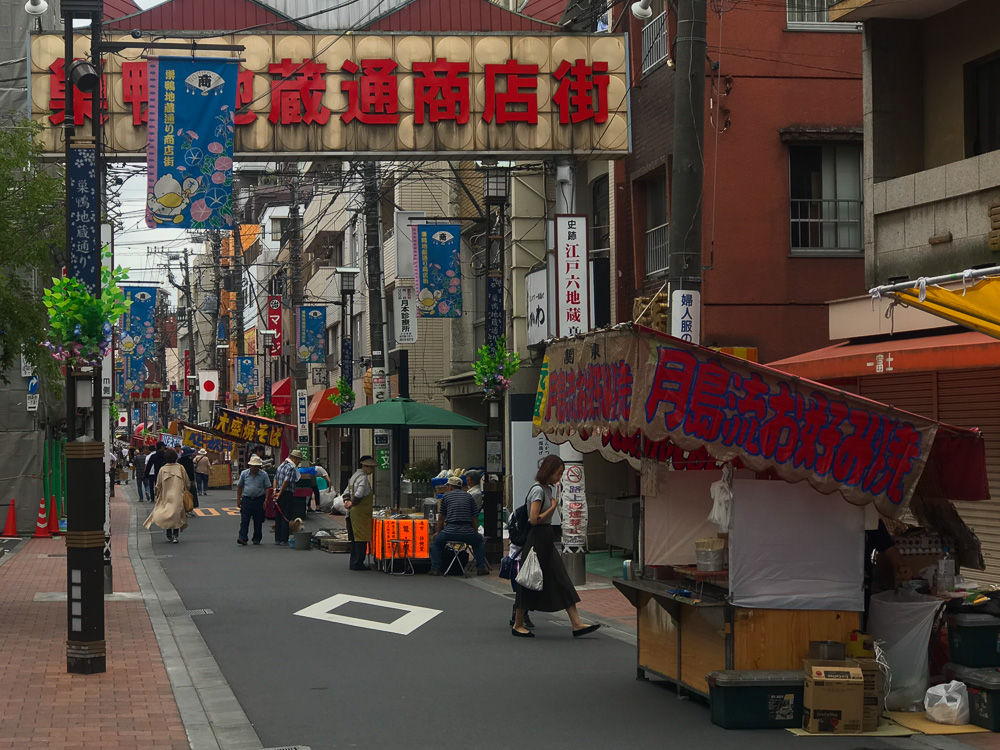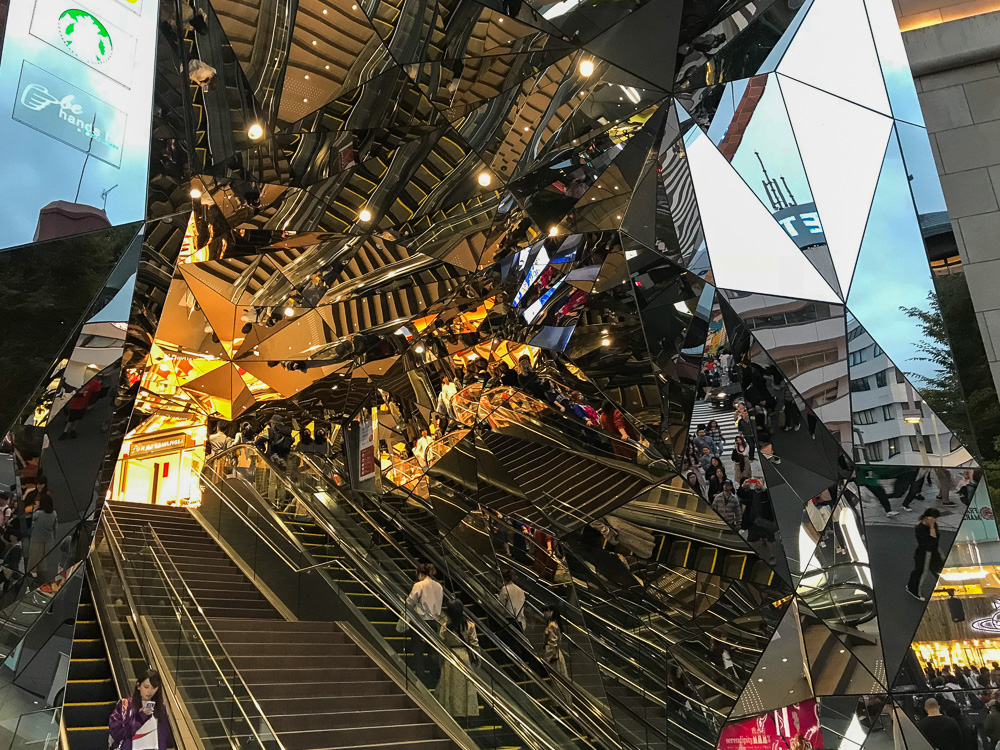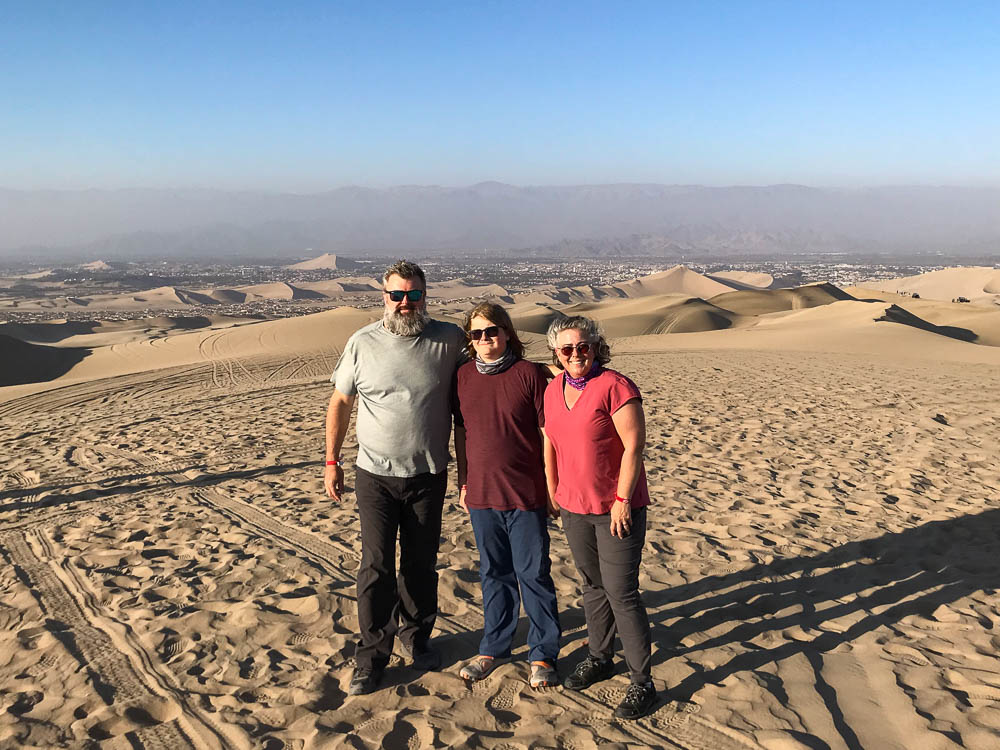Japan – Two Tokyo Museums
Our second full day in Tokyo was a lot more structured than our first day spent wandering various neighborhoods. We had tickets for two Tokyo museums that we had bought well in advance before our trip. This meant we had a very specific plan for the day. Of course, Tokyo’s public transport ran flawlessly, so we didn’t have any trouble getting to, from or between our two major activities for the day.
Ghibli Museum
The first of the two Tokyo museums we visited was the Ghibli Museum. This museum showcases the work of Studio Ghibli, producers of some of the most popular Japanese animated movies. Audiences around the world have enjoyed their films such as Spirited Away and My Neighbor Totoro.
The museum was designed as a whimsical journey through the world of Studio Ghibli, and the architecture reflects this.

You can’t take pictures inside the museum, to enhance the immersive experience. There are some displays that give an insight into how the Studio Ghibli films are developed and made. Other displays are artwork inspired by the films.
One place you are allowed to take photos is the rooftop garden. This features a five meter tall robot soldier.

Unfortunately, it started raining while we were checking out the rooftop garden, so we didn’t spend much time there.
If you want to visit the Ghibli Museum (which we would definitely recommend), you need to buy tickets in advance. From outside Japan you can buy them from JTB agencies (e.g. JTB USA). If you’re already in Japan you can buy tickets at Lawson convenience stores. For more details, see the Ghibli Museum website.
This museum is located outside the major tourist areas in Mitaka. However, it’s pretty easy to get to Mitaka Station from Shinjuku, and then there is a shuttle bus to the museum. Again, the museum website has directions that are easy to follow.
Yayoi Kusama Museum
The second of the Tokyo museums we visited was the Yayoi Kusama Museum. We saw a Kusama exhibit in Houston a couple of years ago, and especially loved her “infinity rooms”, which use mirrors and lights to make enclosed spaces seem limitless. We were excited to see a broader range of her work and learn more about her at this newly opened museum in Tokyo.
The rain continued while we made our way between the two Tokyo Museums, so we were glad to make it to our second stop for the day.

The building itself is not very big, but impressively modern. It sits in a fairly quiet neighborhood on the outskirts of Shinjuku.

Tickets are sold to the Kusama Museum for specific entry times, so we had to wait a while before we could start our exploration of the museum. When the appointed hour came, a staff member gave us an introductory talk, then set us loose to explore.
Exhibits
Some of the works on display rotate periodically. We were lucky enough to see some of Kusama’s earliest works, which are smaller in scale and have more muted colors than her later and current paintings. It was interesting to see hints and motifs in small scale in the early works that showed up in larger scale and vibrant colors in Kusama’s later work. You can’t take photos of any of the paintings, but you can see a few of them on the museum’s website.
The museum’s infinity room installation occupies one full floor of the museum.

With some careful attention to angles, you can even take an infinity room selfie.

At the top of the museum we found a rooftop courtyard featuring a giant pumpkin, one of Kusama’s trademark forms.

From the rooftop, you get a nice view of the quiet neighborhood surrounding the museum.

The Yayoi Kusama Museum had one more surprise in store for us. When we got in the elevator to return to the ground floor after we had seen all the exhibits, we discovered that it had been set up as an infinity room.

Logistics
Tickets for the Yayoi Kusama Museum must be purchased in advance on the museum’s website. They sell out very quickly, so I recommend buying them as soon as they go on sale for the date you want to visit. Calculating this advance timing is a bit confusing, to quote the website:
Tickets go on sale at 10 am (Japan Time) on the first of each month for entry in the month after next (for example, tickets for December 1 through December 24 go on sale from October 1).
The Kusama Museum is not quite as easy to find as the Ghibli Museum. There are two subway stations you can use, depending on where you are coming from. As you can see from the museum website’s access map, there is a bit of a distance to walk from either one. It’s actually nice to walk through this quiet part of Tokyo, away from the hustle and bustle of the busier parts of the city.
Summary
We had a great day visiting two Tokyo museums. They are both relatively small and focus on specific aspects of Japanese art and culture. This makes them a more manageable and less overwhelming like bigger museums such as the Edo-Tokyo Museum or the Tokyo National Museum. While these bigger museums can provide a good overview of Japan’s history and culture, I definitely recommend also seeking out some of the smaller Tokyo museums such as the Ghibli Museum and the Yayoi Kusama Museum when you’re in Tokyo.




















 Travel Magazine
Travel Magazine